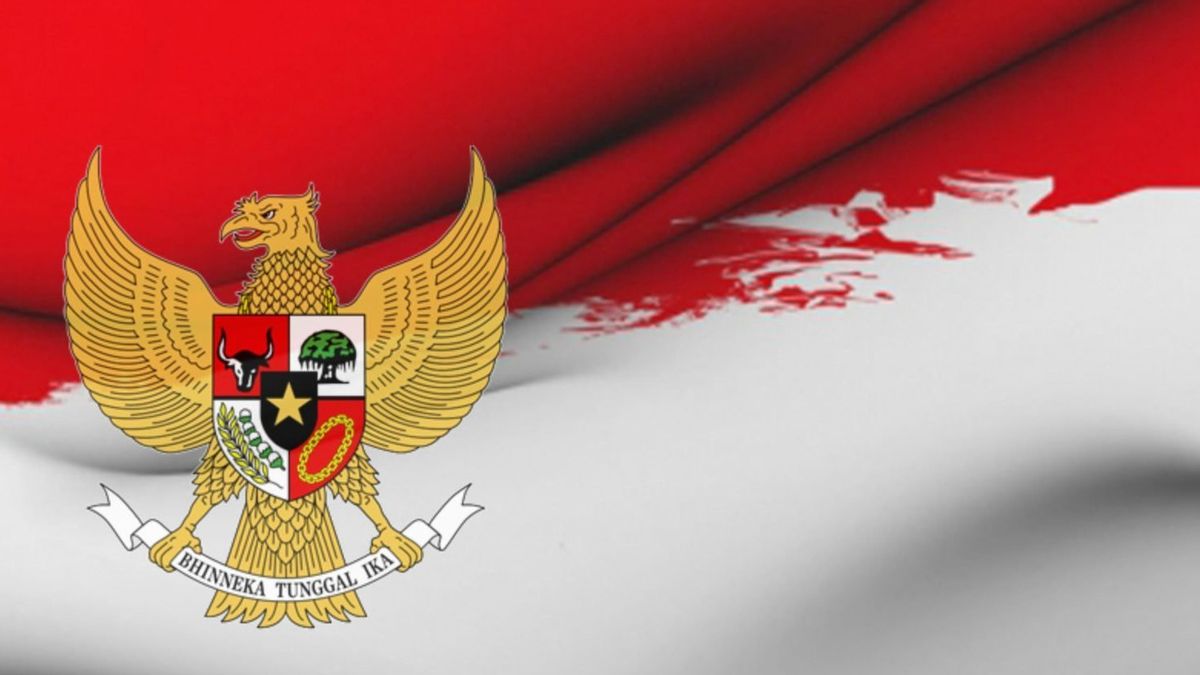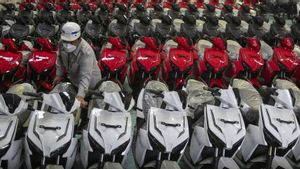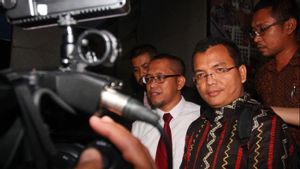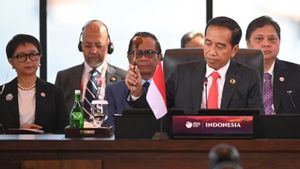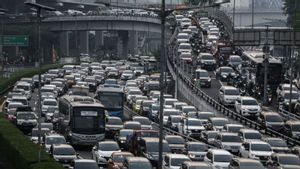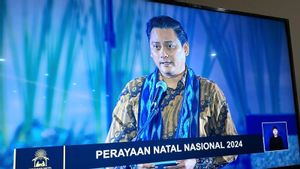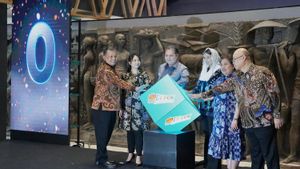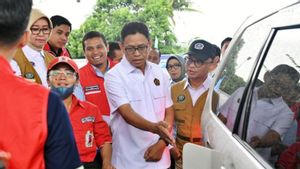JAKARTA The noble values of Pancasila are starting to be forgotten. Pancasila is no longer used as a reference in thinking, acting, and acting as well as in determining and drafting the rules of life of the nation and state.
Today, people can be so easy to curse and blaspheme each other. Not only among grassroots, but the elite also showed the same thing. The Indonesian nation is clearly like losing its identity today.
The implementation of democracy in Indonesia is not clear which direction. In fact, according to Dr. Yoseph Umarhadi in his book "The Human Rights of Pancasila According to Notonagoro and Drijarkara", has been threatened by individualism and liberalism.
The current practice of democracy relies more on individual votes, both in the decision-making process and in choosing a leader. This situation became much worse when the party elite (and government elite) conspired with the economic elite.
Democracy has finally represented itself in its alignment with certain social groups, namely rich groups and not all citizens.
In fact, the fourth precept of Pancasila, namely the people led by wisdom and wisdom in deliberation of representatives, has shown the way for the true application of democracy in Indonesia to be carried out.
The fourth precept, said Dr. Yoseph Umarhadi in his book 'Pancasila Human Rights According to Notonagoro and Drijarkara', is the most important basis for Pancasila democracy. However, this does not stand alone, it remains connected to other precepts as unity according to human nature.
This means that Pancasila democracy does not only rely on the fourth principle, but also all other Pancasila precepts that inspire each other as the realization of human nature.
Thus, the measure of Pancasila democracy is not only in the will of the people as in the understanding of general democracy, namely the government of, and by the people, but includes in it the highest foundation of morality, namely the One Godhead, the basis of humanity that is just and civilized as well as unity and aims to achieve social justice.
This means that all decisions related to joint life are determined through deliberation guided by virtue or kindness.
"Therefore, Pancasila democracy includes political democracy and socio-economics," said Yoseph.
Another threat that has colored the development of democracy in adult Indonesia is the threat of pragmatism. Frankly, Indonesia's democratic practices in recent decades have been colored by the practice of buying and selling votes, especially during the election of legislative members and regional heads. In fact, not only occurred during the election, but also occurred in the preparation stage or determination of candidates for legislative members or regional heads.
另请阅读:
"The term dowry or the obligation of a candidate to hand over a number of funds to be able to get recommendations from the leadership of a political party to become a permanent candidate is proof that pragmatism has also hit political parties," said Yoseph.
It is clearly a real threat and damages the joints of Pancasila democracy. Pragmatism is against the essence of Pancasila philosophy because it undermines the essence of the fourth precept and is not inspired by the first, second, third precepts, and fifth precepts.
This practice distorts the nature of the fourth precept and keeps it away from the fifth principle of principle, namely social justice for all Indonesian people. This is because of its political goals for personal or group interests. Relationships between humans are no longer a dignified relationship between subjects, but the relationship of subjects who exploit other humans as objects, "wrote Yoseph.
Indeed, Pancasila democracy is a democracy that relies on the philosophy of Pancasila. Democracy is not only rooted in the nation's culture, but democracy that is able to answer the needs of achieving Indonesia's national goals as stated in the opening of the 1945 Constitution, namely protecting the entire Indonesian nation and all of Indonesia's bloodshed, advancing public welfare, educating the nation's life, and participating in implementing world order based on independence, eternal peace, and social justice.
Characteristics, first democracy which is fully responsible for God Almighty. In other words, the implementation of Pancasila democracy is the implementation of the teachings of goodness that come from God or religion.
"These divine values are the basis for all actions in democracy, both for leaders who are in power, want to gain power, and the people who will determine their leader to rule," said Yoseph.
Second, a democracy that is fully responsible for humanity. Pancasila democracy is a democracy that places humans as subjects that must be respected as fellow human beings.
Third, Pancasila democracy is always required to maintain unity. This is a dimension that needs to be emphasized because of the reality for the sake of power, the candidates for leaders often use various methods that do not care about efforts to maintain national unity.
Fourth, Pancasila democracy must always be oriented towards justice. Political democracy and socio-economic democracy must work together and political democracy is a means to achieve socio-economic justice for all people.
Quoting the statement by the Special Staff of the Chairperson of the Steering Committee of the Pancasila Ideology Development Agency (BPIP), Antonius Benny Susetyo, "When we love God (the value of God), it means that we will consistently protect humanity (humanitarian values). In the spirit of unity, no one wins and no one loses (the value of unity)".
"There are no minorities or majority, that's the deliberation. The deliberation is a win-win, not a win-lose (values of deliberation and people). When we both do awin-win solution, we can accept differences and be fair. That is the value of social justice," Benny continued.
Pancasila is the basis of the state. Not only private morals by memorizing, but also public morale by applying Pancasila values to the direction of policies to build the nation.
The English, Chinese, Japanese, Arabic, and French versions are automatically generated by the AI. So there may still be inaccuracies in translating, please always see Indonesian as our main language. (system supported by DigitalSiber.id)
